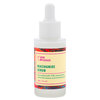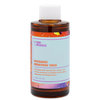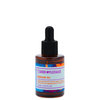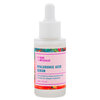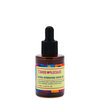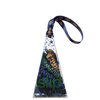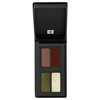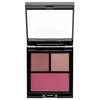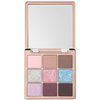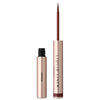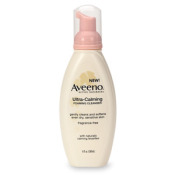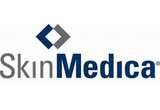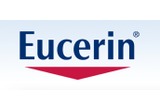
Are you ever plagued by hard, painful bumps on your face? Cystic acne develops for different reasons, including genetics, stress, hygiene. "It's important to understand that cysts are part of the total spectrum of acne," says New York City dermatologist Heidi A. Waldorf, M.D. "Comedonal acne—typically referred to as blackheads and whiteheads—occurs when the follicles and pores on your skin get clogged. Your skin naturally produces oil to lubricate and hydrate, but when your pores are clogged, the oil becomes viscous. The change in texture stops the oil from turning over, so it builds up bacteria and develops into a blemish." Cystic acne is slightly different. The bacteria live further down the follicle and multiplies as more debris gets trapped in. Your body sends white cells to fight the bacteria, but then those cells actually create an even larger walled-off pustule beneath the skin filled with a combination of skin cells, oil, white cells, and bacteria. Some people have comedonal acne, some have cystic, and some have both—it depends on the makeup of the individual.
Cystic acne is a sore spot for many who've been long-time sufferers, and many factors can cause daily or monthly breakouts. "All acne is somewhat hormonally-related because you go through these massive biological changes during puberty," says Dr. Waldorf. "However, women can still suffer from cystic acne into their twenties and beyond. Adult cystic acne could be associated with high testosterone levels, or an imbalance in estrogen and progesterone levels." And it's not solely hormones that can trigger cystic acne—stress can strongly affect the condition of your skin! "If you're already breaking out, stress will only make things worse," admits Dr. Waldorf. "That's why women typically get big cysts right before their wedding or a big event."
What to do if she suffers from these large and painful bumps? "If you get only one cyst here or there, you can go to a dermatologist for a tiny steroid injection to reduce inflammation. For at-home treatment, put a warm compress on the blemish then rub in a corticosteroid to calm it down. Over-the-counter 1% hydrocortisone should work."
It's trickier for those who get cystic acne on a monthly basis (usually around their period). "Cystic acne around the chin and mouth is usually a hormonal and menstrual-related issue—visit your dermatologist and get your hormone levels checked," suggests Dr. Waldorf. "But whether it's a daily issue or a monthly breakout, my number one tip is do not pick! I tell my patients who can't stop picking that they must cut the habit cold turkey, no matter what. Do whatever you can to stop the habit, because your popping-fest will cause more issues later. I especially recommend extra sunscreen for those with damage already. Acne scars with sun damage will fall inward as you age—not a pretty look."
"To treat scarring, Dr. Waldorf typically uses several types of lasers. For at-home scar healing, she recommends using a topical retinoid specifically designed to help with acne, not a generic scar medication."
For help with cystic acne and inflammation, Dr. Waldorf recommends:
- Aveeno Ultra-Calming Foaming Cleanser with Feverfew
- Skinmedica Redness Relief Calmplex
- Eucerin Redness Relief Daily Perfecting Lotion SPF 15

Featured Products
You Might Also Like
-

Fitness
Body By Kit: Heavier Ever After
- 73
-
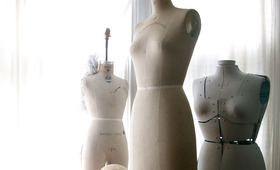
Stories
Body By Kit: The Sickest Part of Being Sick
- 290
-
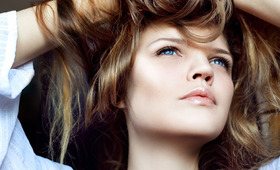
Expert Skin Care Advice
Skin-Saving Tips That Can Change Your Complexion
- 1711
-
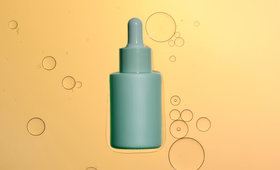
Expert Skin Care Advice
What is Retinol?
- 320
-
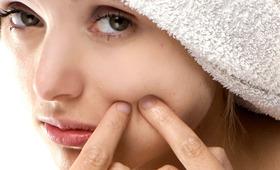
Blemish & Acne Treatments
Top 3 Pimple Fighters
- 285
-
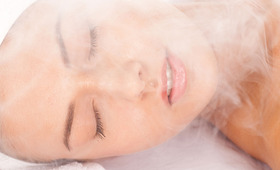
Expert Skin Care Advice
5 Skin Misconceptions
- 175
-
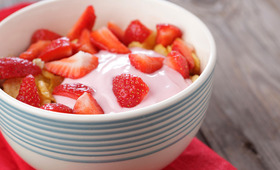
Wellness
Why We Love Yogurt
- 648
-
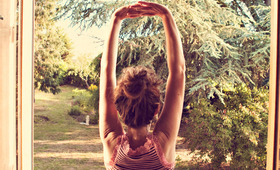
Fitness
outFit With Kit: The Morning Wake-Up Workout
- 1681



